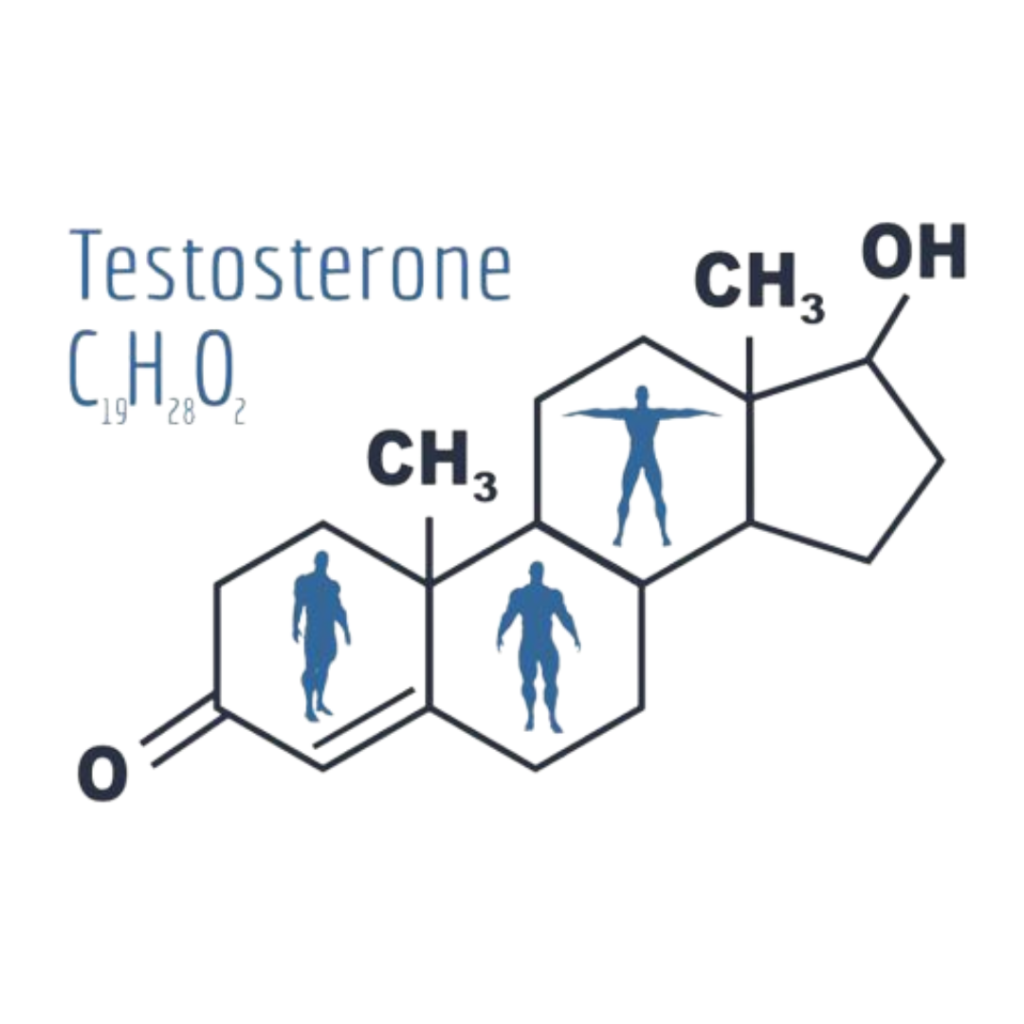
Low testosterone, or low T, is a common hormonal condition that affects many men, particularly as they age. Testosterone plays a crucial role in various aspects of men’s health, including muscle mass, bone density, sexual function, and overall well-being. When testosterone levels drop below the normal range, it can lead to a range of symptoms and have a significant impact on a man’s quality of life.
If you suspect that you may have low testosterone, it is essential to have an open and informed discussion with your doctor. Seeking medical advice and discussing treatment options is the first step towards addressing this condition and improving your overall health and well-being. In this blog post, we will explore the topic of low T and the importance of discussing treatment options with your doctor.
Understanding Low Testosterone
Testosterone is a hormone produced primarily in the testicles of men and, to a lesser extent, in the ovaries of women. It is responsible for the development and maintenance of male characteristics and plays a crucial role in various bodily functions. Testosterone levels are highest during adolescence and early adulthood and gradually decline with age.
Low testosterone, also known as hypogonadism or low T, occurs when testosterone levels fall below the normal range. While it is a natural part of the ageing process for testosterone levels to decrease, some men may experience a more significant decline that leads to symptoms and health issues.
There are two primary types of low testosterone:
- Primary hypogonadism: This occurs when there is a problem with the testicles, resulting in inadequate testosterone production. Causes of primary hypogonadism can include genetic conditions, testicular injury or trauma, chemotherapy or radiation therapy, or certain autoimmune diseases.
- Secondary hypogonadism: This type of low T is caused by issues with the hypothalamus or pituitary gland, which regulate testosterone production. Factors such as obesity, chronic illness, certain medications, and hormonal disorders can contribute to secondary hypogonadism.
Low testosterone can have various effects on the body, including:
- Sexual health: Testosterone plays a vital role in maintaining sexual function, including libido, erectile function, and fertility. Low T can lead to decreased sex drive, difficulty achieving or maintaining erections, and reduced sperm production.
- Physical health: Testosterone helps maintain muscle mass and strength, bone density, and red blood cell production. Low T can result in decreased muscle mass, increased body fat, decreased bone density, and a higher risk of osteoporosis and fractures.
- Mood and cognitive function: Testosterone influences mood, energy levels, and cognitive function. Low T can contribute to symptoms such as fatigue, decreased motivation, irritability, depression, and difficulties with concentration and memory.
- Metabolic health: Testosterone plays a role in regulating metabolism, including insulin sensitivity and lipid metabolism. Low T has been associated with an increased risk of obesity, insulin resistance, metabolic syndrome, and cardiovascular disease.
It is important to note that symptoms of low T can vary from person to person, and some individuals may experience subtle changes that they may not immediately attribute to low T. If you suspect you may have low T or are experiencing symptoms associated with it, it is crucial to discuss your concerns with a healthcare professional. They can evaluate your symptoms, perform necessary tests, and discuss appropriate treatment options tailored to your specific needs.
Diagnosis and Testing for Low Testosterone
If you suspect that you may have low T, it is important to consult with a healthcare professional for a proper diagnosis. They will evaluate your symptoms, and medical history, and conduct specific tests to determine your testosterone levels. The diagnosis process typically involves the following steps:
- Medical History: Your doctor will ask you about your symptoms, medical history, medications you are currently taking, and any previous treatments or surgeries that may be relevant. They will also inquire about lifestyle factors such as exercise habits, sleep patterns, and stress levels.
- Physical Examination: A physical examination may be performed to assess your overall health, including measuring your height, weight, and body composition. The doctor may also examine your genitalia, testicles, and prostate gland.
- Blood Tests: The most common method of diagnosing low T is through a blood test. Typically, two types of blood tests are conducted:
a. Total Testosterone: This test measures the total amount of testosterone in your bloodstream. It is usually taken in the morning when testosterone levels are highest.
b. Free Testosterone: This test measures the amount of testosterone that is not bound to proteins and is available for use by the body. Free testosterone levels can provide additional information about testosterone availability and potential symptoms.
- Additional Hormone Testing: In some cases, your doctor may order additional blood tests to evaluate other hormone levels that can impact testosterone production. These tests may include luteinizing hormone (LH), follicle-stimulating hormone (FSH), estrogen, and thyroid hormone levels.
- Repeated Testing: Testosterone levels can fluctuate throughout the day and can be influenced by various factors. As a result, if your initial test results indicate low T, your doctor may recommend repeating the blood tests on different days to confirm the diagnosis.
It is important to note that testosterone levels can vary among individuals, and what is considered low for one person may be within the normal range for another. Additionally, symptoms alone are not sufficient to diagnose low T, as they can be caused by other medical conditions. Therefore, accurate testing is crucial to ensure an appropriate diagnosis.
Once the diagnosis of low T is confirmed, your doctor will discuss the available treatment options based on the severity of your symptoms, overall health, and personal preferences. Treatment options may include testosterone replacement therapy (TRT), lifestyle modifications, medications, or natural supplements.
Treatment Options
Once low T is diagnosed, your doctor will discuss various treatment options based on the severity of your symptoms, your overall health, and personal preferences. Here are some common treatment options:
- Testosterone Replacement Therapy (TRT): TRT involves replacing testosterone through gels, injections, patches, or pellets. It can help alleviate symptoms and improve overall quality of life. Your doctor will determine the most suitable method and dosage based on your specific needs.
- Lifestyle Modifications: In some cases, making lifestyle changes can help increase testosterone levels. Regular exercise, a healthy diet, weight management, stress reduction, and quality sleep are essential for maintaining hormonal balance.
- Medications: In certain situations, your doctor may prescribe medications that stimulate the production of testosterone or block the conversion of testosterone to estrogen.
- Natural Supplements: Some men turn to natural supplements, such as DHEA or zinc, to support testosterone levels. However, it is crucial to consult with your doctor before starting any supplements as they can interact with other medications or have potential side effects.
Monitoring and Follow-Up
After starting any form of treatment, regular monitoring is important to ensure the therapy is effective and safe. Your doctor will likely schedule follow-up appointments to evaluate your progress, monitor hormone levels, and address any concerns or side effects that may arise.
Conclusion
Regular monitoring and follow-up with your doctor are crucial after starting any form of treatment for low T. This allows for adjustments in treatment if necessary and ensures that the therapy is both effective and safe for you.
Remember, low testosterone is a treatable condition, and seeking medical guidance is the first step towards improving your quality of life. By discussing your concerns with a healthcare professional, you can gain a better understanding of your condition and explore appropriate treatment options that will address your symptoms and optimize your overall well-being.
It is important to note that the information provided in this blog post is for informational purposes only and should not replace professional medical advice. Always consult with a qualified healthcare professional regarding your specific health concerns and treatment options.
Take control of your health and engage in open communication with your doctor to address low testosterone and reclaim your vitality and well-being.
Dr. Sumit Sharma is an experienced urologist, andrologist, and kidney transplant surgeon with over 20 years of clinical experience. He is the founder of the Department of Urology at multiple hospitals in Gurgaon and has established successful kidney transplant programs across the city.



